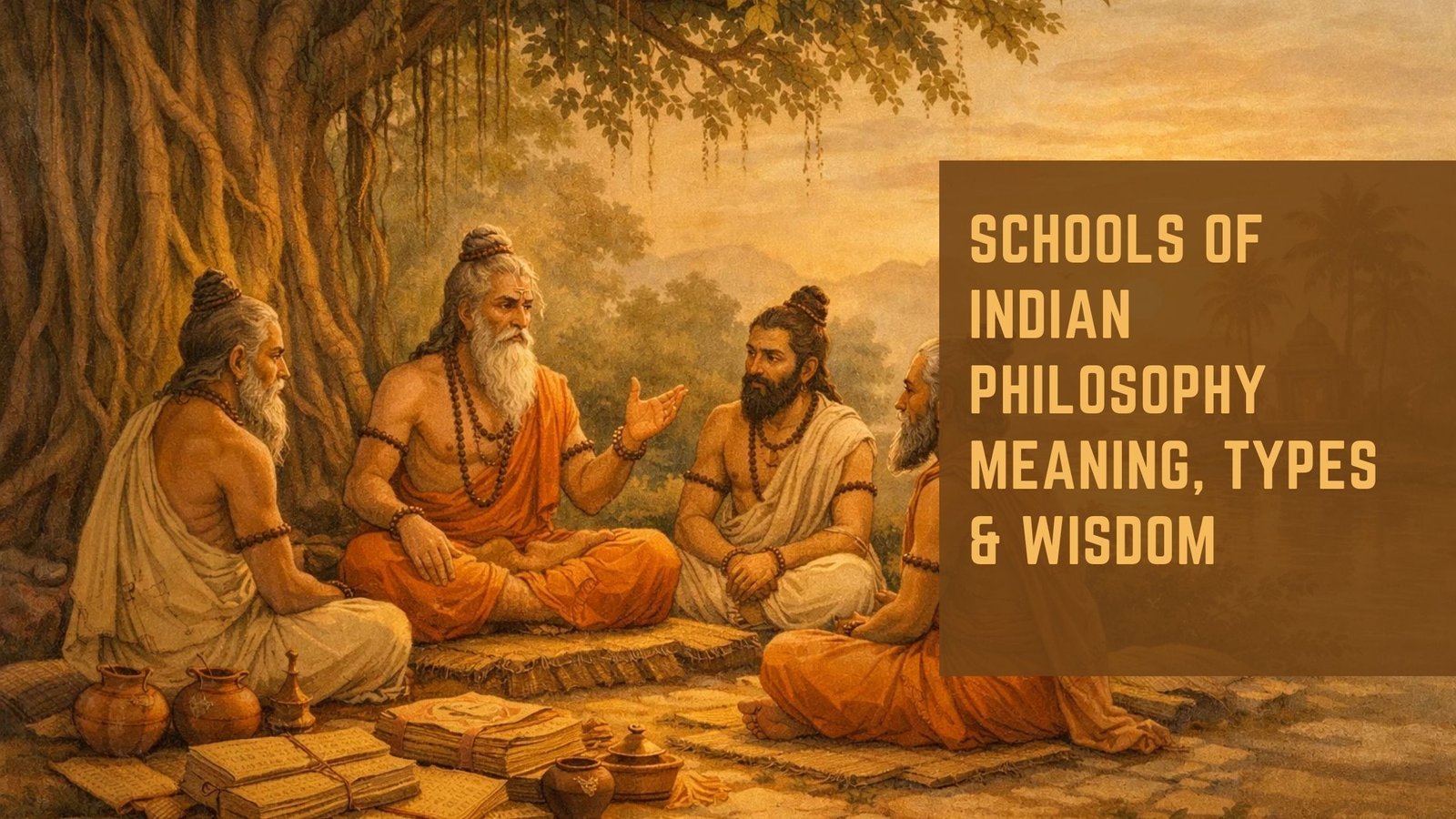The Bhagavad Gita, a revered text in Hindu philosophy, delves deeply into the complexities of the human mind and its influence on behavior and decision-making. In Chapter 2, Verse 63, the Gita articulates a profound truth about the mind’s role in shaping one’s destiny. It states that when an individual allows their senses to dominate their thoughts, it leads to confusion and ultimately results in the loss of discernment.
This verse serves as a reminder of the intricate relationship between sensory experiences and mental clarity. The mind, when left unchecked, can become a battleground of conflicting desires and emotions, leading to a state of turmoil. The Gita emphasizes that understanding the mind is crucial for personal growth and spiritual development.
It encourages individuals to cultivate awareness of their thoughts and feelings, recognizing that these mental patterns can either empower or hinder them. By exploring the teachings of the Gita, one can gain insights into the nature of the mind and its propensity to sway under external influences. This understanding lays the groundwork for self-mastery, enabling individuals to navigate life’s challenges with greater resilience and clarity.
Key Takeaways
- Understanding the Mind: Bhagavad Gita 2:63 emphasizes the importance of controlling the mind to achieve inner peace and self-mastery.
- The Power of Self-Mastery: By mastering the mind, individuals can overcome mental challenges and cultivate discipline and focus in their daily lives.
- Overcoming Mental Challenges: Insights from Bhagavad Gita 2:63 provide guidance on how to overcome mental challenges and achieve spiritual growth.
- The Art of Controlling the Mind: Lessons from Bhagavad Gita 2:63 teach the art of controlling the mind to achieve inner peace and spiritual growth.
- Achieving Inner Peace: Bhagavad Gita 2:63 emphasizes the connection between achieving inner peace and mastering the mind, offering insights for personal growth and development.
The Power of Self-Mastery: Bhagavad Gita 2:63
Self-mastery is a central theme in the Bhagavad Gita, particularly in the context of Verse 2:63. The verse highlights that when one is overwhelmed by sensory experiences, it can lead to a loss of self-control and rationality. This loss manifests as emotional upheaval and confusion, which can derail an individual’s path toward their goals.
The Gita teaches that true strength lies in mastering one’s mind and emotions rather than being a mere puppet to external stimuli. This mastery is not about suppression but rather about understanding and channeling one’s thoughts and feelings constructively. Achieving self-mastery requires discipline and practice.
The Gita advocates for techniques such as meditation, mindfulness, and self-reflection as means to cultivate a strong and focused mind. By engaging in these practices, individuals can learn to observe their thoughts without judgment, allowing them to respond thoughtfully rather than react impulsively. This process fosters a sense of empowerment, enabling individuals to reclaim control over their lives and make decisions aligned with their higher selves.
Overcoming Mental Challenges: Insights from Bhagavad Gita 2:63

Mental challenges are an inevitable part of the human experience, often arising from stress, anxiety, or external pressures. The insights from Bhagavad Gita 2:63 provide valuable guidance on how to navigate these challenges effectively. The verse underscores the importance of maintaining mental clarity amidst chaos.
When individuals find themselves overwhelmed by negative thoughts or emotions, they are encouraged to pause and reflect on their inner state. This moment of introspection can serve as a powerful tool for overcoming mental obstacles. The Gita also emphasizes the significance of cultivating a balanced perspective.
By recognizing that thoughts are transient and do not define one’s identity, individuals can distance themselves from negative mental patterns. This detachment allows for greater emotional resilience, enabling individuals to face challenges with a calm and composed mindset. The teachings of the Gita encourage individuals to view difficulties as opportunities for growth rather than insurmountable barriers, fostering a sense of hope and determination.
The Art of Controlling the Mind: Lessons from Bhagavad Gita 2:63
| Lesson | Metric |
|---|---|
| Importance of Controlling the Mind | Emphasizes the significance of controlling the mind to avoid negative consequences |
| Impact of Uncontrolled Mind | Describes the detrimental effects of an uncontrolled mind on one’s actions and decisions |
| Techniques for Mind Control | Provides insights into various techniques and practices for controlling the mind |
| Benefits of Controlled Mind | Highlights the positive outcomes and benefits of having a controlled mind |
Controlling the mind is often described as one of the most challenging yet rewarding pursuits in spiritual practice. The Bhagavad Gita offers profound lessons on this art through its teachings in Verse 2:63. The verse serves as a cautionary reminder that unchecked desires can lead to confusion and distraction.
To master the mind, one must first acknowledge its tendencies and learn to navigate its complexities with skill and intention. One effective approach highlighted in the Gita is the practice of mindfulness.
This practice fosters a sense of detachment, allowing individuals to respond to situations with clarity rather than being driven by impulsive reactions. Additionally, the Gita encourages individuals to engage in self-discipline through regular practices such as meditation and yoga, which help strengthen the mind’s ability to focus and remain centered amidst external distractions.
Achieving Inner Peace: Bhagavad Gita 2:63 and the Mind
Inner peace is a state that many seek but few attain, often due to the relentless chatter of the mind. The teachings of Bhagavad Gita 2:63 provide a roadmap for achieving this elusive tranquility. By understanding that the mind can be both a source of turmoil and a vessel for peace, individuals are empowered to take charge of their mental landscape.
The verse suggests that by mastering one’s thoughts and emotions, one can cultivate an inner sanctuary that remains undisturbed by external circumstances. The journey toward inner peace involves recognizing the transient nature of thoughts and emotions. The Gita teaches that clinging to negative experiences or desires only perpetuates suffering.
Instead, individuals are encouraged to embrace acceptance and surrender to the present moment. This shift in perspective allows for greater emotional stability and resilience, paving the way for lasting peace. Through consistent practice of self-awareness and mindfulness, individuals can create a harmonious inner environment that fosters well-being.
Cultivating Discipline and Focus: Bhagavad Gita 2:63

Discipline and focus are essential qualities for anyone seeking personal growth and spiritual advancement. In Bhagavad Gita 2:63, these qualities are underscored as vital components in mastering the mind. The verse illustrates how distractions stemming from uncontrolled senses can lead to confusion and hinder progress.
To cultivate discipline, individuals must commit to regular practices that enhance their mental clarity and focus. One effective method for developing discipline is through structured routines that incorporate meditation, study, and self-reflection. By dedicating time each day to these practices, individuals can train their minds to remain focused on their goals while minimizing distractions.
The Gita also emphasizes the importance of setting intentions aligned with one’s higher purpose, which serves as a guiding light during moments of uncertainty or temptation. This alignment fosters a sense of commitment and determination that propels individuals forward on their journey.
Applying Bhagavad Gita 2:63 in Daily Life: Mastering the Mind
The teachings of Bhagavad Gita 2:63 are not merely theoretical concepts; they offer practical guidance for mastering the mind in daily life. Individuals can apply these insights by incorporating mindfulness practices into their routines. Simple techniques such as deep breathing exercises or mindful walking can help ground individuals in the present moment, reducing anxiety and enhancing focus.
Moreover, cultivating self-awareness is crucial for recognizing when one’s mind begins to wander or become overwhelmed by negative thoughts. By developing this awareness, individuals can intervene before they become ensnared in unproductive mental patterns. Journaling is another effective tool for processing thoughts and emotions, allowing individuals to gain clarity on their experiences while fostering a deeper understanding of themselves.
The Path to Spiritual Growth: Bhagavad Gita 2:63 and the Mind
The journey toward spiritual growth is intricately linked to mastering the mind, as highlighted in Bhagavad Gita 2:63. The verse serves as a reminder that true liberation comes from within; it is not dependent on external circumstances but rather on one’s ability to navigate their inner landscape with wisdom and discernment. As individuals embark on this path, they discover that overcoming mental challenges leads to profound transformation.
Spiritual growth involves embracing practices that foster self-awareness, compassion, and resilience. The teachings of the Gita encourage individuals to view challenges as opportunities for learning rather than obstacles to be avoided. By cultivating a mindset rooted in acceptance and gratitude, individuals can deepen their connection to their higher selves while fostering a sense of unity with others.
Ultimately, mastering the mind becomes not just a personal endeavor but a collective journey toward greater consciousness and spiritual awakening. In conclusion, Bhagavad Gita 2:63 offers timeless wisdom on understanding and mastering the mind. Through its teachings, individuals are empowered to navigate life’s complexities with clarity and purpose.
By cultivating self-mastery, overcoming mental challenges, and embracing practices that promote inner peace, discipline, and focus, one can embark on a transformative journey toward spiritual growth. The insights gleaned from this sacred text serve as guiding principles for anyone seeking to harness the power of their mind in pursuit of a more fulfilling life.
In Bhagavad Gita chapter 2 verse 63, Lord Krishna imparts wisdom about the importance of controlling one’s mind and senses. This verse emphasizes the significance of self-discipline and self-control in achieving spiritual growth. For further insights into the hidden wisdom of the Bhagavad Gita, readers can explore the article “Unlocking the Bhagavad Gita’s Hidden Wisdom”.
FAQs
What is the significance of Bhagavad Gita chapter 2 verse 63?
Bhagavad Gita chapter 2 verse 63 emphasizes the importance of controlling one’s desires and senses in order to achieve inner peace and spiritual growth.
What does Bhagavad Gita chapter 2 verse 63 teach?
This verse teaches the importance of self-control and discipline in order to attain spiritual enlightenment and liberation from the cycle of birth and death.
How does Bhagavad Gita chapter 2 verse 63 relate to daily life?
This verse encourages individuals to practice self-discipline and control over their desires and senses in their daily lives in order to achieve inner peace and spiritual growth.
What are the key teachings of Bhagavad Gita chapter 2 verse 63?
The key teachings of this verse include the importance of self-control, discipline, and the role they play in achieving spiritual growth and inner peace.














